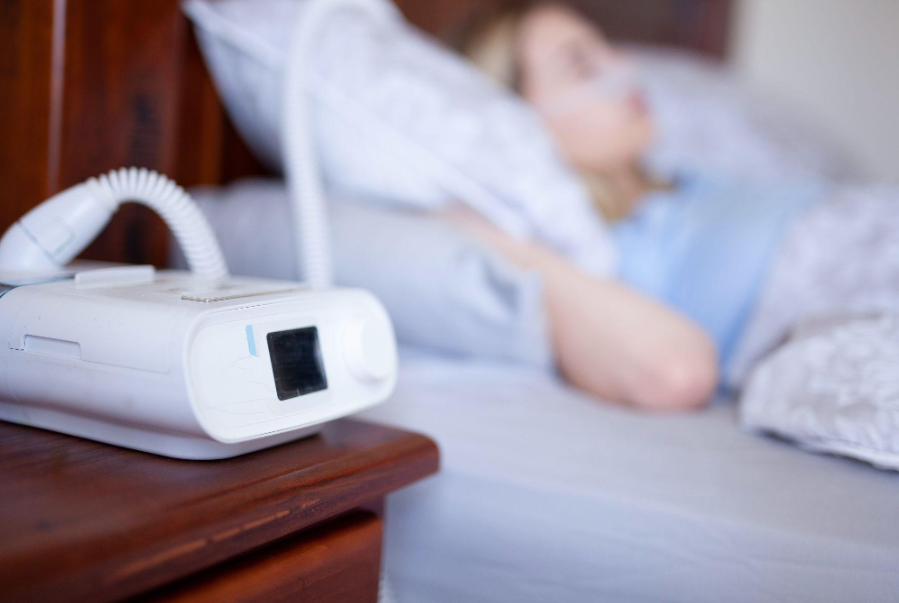Physical Address
304 North Cardinal St.
Dorchester Center, MA 02124
Physical Address
304 North Cardinal St.
Dorchester Center, MA 02124

For individuals diagnosed with sleep apnea, finding the right treatment can be essential for improving sleep quality and overall well-being. While Continuous Positive Airway Pressure (CPAP) therapy has long been the standard treatment for sleep apnea, it may not be suitable for everyone. Fortunately, there’s an alternative that’s gaining popularity: Bipap machines. Why BiPAP For Sleep Apnea is emerging as the preferred CPAP alternative, offering enhanced comfort, flexibility, and effectiveness in managing sleep apnea.
Sleep apnea is a common sleep disorder characterized by repeated pauses in breathing during sleep. These pauses, known as apneas, can lead to fragmented sleep, daytime fatigue, and other health complications. CPAP therapy works by delivering a continuous stream of air through a mask to keep the airway open during sleep, effectively preventing apneas. While CPAP therapy is highly effective for many individuals, some may find it uncomfortable or challenging to tolerate due to the constant pressure it delivers.
CPAP alternative, also known as Bilevel Positive Airway Pressure machines, offer a unique alternative to traditional CPAP therapy. Unlike CPAP machines, which deliver a constant pressure throughout the breathing cycle, Bipap machines provide two levels of pressure: a higher pressure during inhalation (IPAP) and a lower pressure during exhalation (EPAP). This bilevel pressure adjustment allows for more comfortable breathing patterns, making Bipap machines particularly well-suited for individuals who struggle with the constant pressure of CPAP therapy.
One of the primary advantages of Bipap machines over CPAP therapy is the enhanced comfort they provide. The ability to adjust the pressure levels during inhalation and exhalation mimics the natural breathing process more closely, reducing feelings of airway resistance and discomfort. As a result, many sleep apnea sufferers find Bipap therapy easier to tolerate and more conducive to achieving restful sleep. Additionally, Bipap machines often offer advanced comfort features such as heated humidification and adjustable ramp settings, further enhancing the overall sleep experience.
Another key benefit of Bipap machines is their greater flexibility and customization options compared to CPAP therapy. Sleep apnea is a highly individualized condition, and what works well for one person may not be suitable for another. Bipap machines allow for precise adjustment of pressure settings, airflow rates, and other parameters to accommodate the specific needs and preferences of each patient. This customization ensures that individuals receive optimal therapy tailored to their unique breathing patterns and sleep patterns, maximizing the effectiveness of treatment.
Bipap machines are particularly beneficial for individuals with complex sleep apnea or other respiratory conditions that may require more advanced therapy. Complex sleep apnea, also known as mixed sleep apnea, involves a combination of obstructive and central sleep apnea events. Bipap therapy can effectively address both types of apneas by providing variable pressure support to maintain open airways during sleep. Additionally, Bipap machines offer features such as backup respiratory rate monitoring and timed inspiratory and expiratory cycles, making them well-suited for managing complex respiratory conditions.
In conclusion, Bipap machines are revolutionizing the treatment of sleep apnea by offering a superior alternative to traditional CPAP therapy. With their bilevel pressure adjustment, enhanced comfort, flexibility, and effectiveness in managing complex sleep apnea, Bipap machines provide sleep apnea sufferers with a preferred solution for achieving restful sleep and improving overall quality of life. If you’re struggling with CPAP therapy or seeking a more comfortable and customizable treatment option for sleep apnea, consider Bipap machines as an alternative and discuss with your healthcare provider to determine if they are the right choice for you.